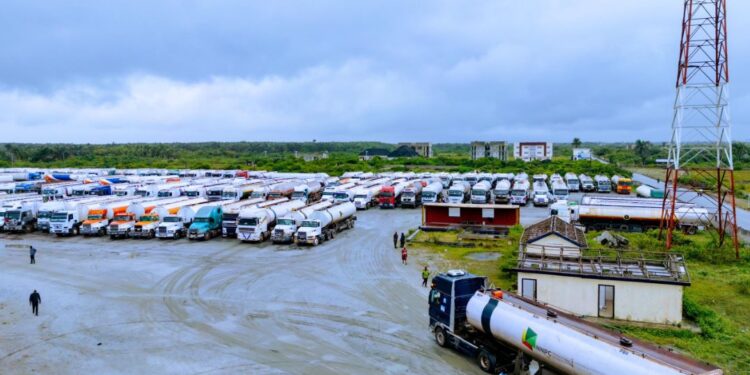The statement comes after oil retailers under the Petroleum Retail Outlet Owners Association of Nigeria (PETROAN) pressed the refinery for clarity on PMS pricing and access to supplies, highlighting a delay that has reportedly impacted operations. IPMAN President Abubakar Maigandi noted that members had visited the Lekki-based refinery but were unable to lift petrol after several days, despite Dangote Group’s statement that 500 million liters of petrol were available.
According to Maigandi, IPMAN members had made payments intending to buy fuel directly, yet were unable to load any products. Dangote Group Chief Branding and Communications Officer, Anthony Chiejina, clarified that payments made by IPMAN were directed to NNPC, not Dangote, as NNPC controls the release of petrol to independent marketers. “The Dangote Petroleum Refinery has not received any payments from IPMAN for refined products. NNPC must authorize the release of PMS to IPMAN members,” he stated.
Chiejina also emphasized Dangote’s capacity to load up to 2,900 trucks of petroleum products daily, noting that they were prepared to meet national demand across petrol, diesel, and aviation fuel. “We encourage IPMAN to register with us directly for a smooth transaction process,” he added.
PETROAN’s National Publicity Secretary, Dr. Joseph Obele, expressed frustration at the lack of price transparency from the Dangote refinery, stating that competitive pricing could draw significant demand from marketers. He suggested that price clarity would improve market stability and customer access to fuel.
In a related development, Major Energies Marketers Association of Nigeria (MEMAN) assured the public that fuel supplies are sufficient and discouraged panic buying. MEMAN CEO, Clement Isong, affirmed that adequate stocks are in place, while data shows the current landing costs for petrol at N978.01/liter, diesel at N1,069.97/liter, and aviation fuel at N1,119.67/liter.
MEMAN noted that Nigeria’s downstream sector deregulation allows marketers to plan in advance, thus reducing supply chain issues.
























